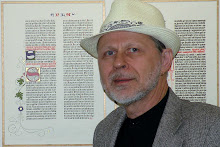If you are a car owner, you have undoubtedly encountered the distinction between license and title. The title of the car is a certificate of ownership. If I have title I can tear it down, rebuild it, repaint it, scrap it, or sell it. Notice, I didn't say I could drive it. In order to drive the car, I have to have a license. In fact, I have to have two licenses. One license is for the car, giving me the right to have it on the road. The other is a license for me to drive the car. Fortunately, I don't have to have a separate driver's license for every car I drive. That is a license on me as a driver, not on the car itself.
Is there any comparison between this model and the purchase of books? (or by extension, music, movies, and other media?) This might go nowhere, but let me try to draw some comparisons.
If I buy a paper-based book at a bookstore, I own the book. No one believes that they own the ideas in the book or the words that were written anymore than they own the patents on their automobile or the logo that identifies its manufacturer. So, as a physical object, I have title to the book. I can do just about anything to that physical copy I want to. I can read it, loan it to friends, cut it up and paste it together as a work of art, give it away, sell it, or burn it. I don't need any additional license to the book or as a reader to use or abuse the physical object in any way I want to. (Though that has some interesting implications. Perhaps we should consider issuing reading licenses that authorize people to read??? Another topic at another time.) What I can't do is deprive the author/publisher of their right to the creative work and their right to profit from it. No big deal since the cost of copying the book, printing it, and selling it is generally prohibitive anyway.
Somehow we are expected to believe, however, that buying an eBook gives us a different set of rights. We are told by those who hold that eBooks are software and subject to the rules of software publishing (which really don't make sense in the first place) that we do not have title to the eBook we have purchased. We have a license to read the eBook. We cannot loan it to friends, cut it up and paste it together as a work of art, give it away, sell it. I suppose we can destroy it, erase it, but that simply amounts to a revocation of license. In one way or another, the entity of the eBook is not supposed to be the same as the entity of a paper book because this will cause the boogeyman to descend upon all creation and western civilization will collapse.
I believe differently. I was told by a reader of my paper book For Blood or Money, that the copy he had purchased had been read by four other people. I'm pleased. Everyone had enjoyed the book. But I only made one sale. Have they cheated me? No. They didn't steal my words, make copies, sell them, or cheat me out of revenue. They did what was completely legal for them to do. I expect the book will one day end up in a garage sale and if I'm lucky someone will pay fifty cents for it and five more people will read it before it is too tattered and worn to give away again. One of my goals is that individual sale of a copy of my book will represent five readers.
Take the next situation. Another reader, this time of the eBook version, put a copy on both her eReader and her husband's. According to the industry standard, I am supposed to be incensed because she only paid for one copy! She was only supposed to be licensed to read it on her reader. She should have loaned her reader to her husband because that is the only road it was licensed to be driven on.
Poppycock!
That same reader returned and bought 8 copies of the paper book to give as gifts! I'm hoping she lets three more people read her eBook version.
We should have exactly the same rights to an eBook as we have to a paper book. No, you can't just keep copying it and selling or giving it away. But you should be able to read it, loan it, tear it apart or tear it up, sell it, or destroy it. Civilization will not end. My royalties won't suffer. I sell books, not licenses. And I sincerely hope that my books are of high enough quality both in content and construction that they average five readers per every copy sold.
Tuesday, January 18, 2011
Subscribe to:
Comments (Atom)
